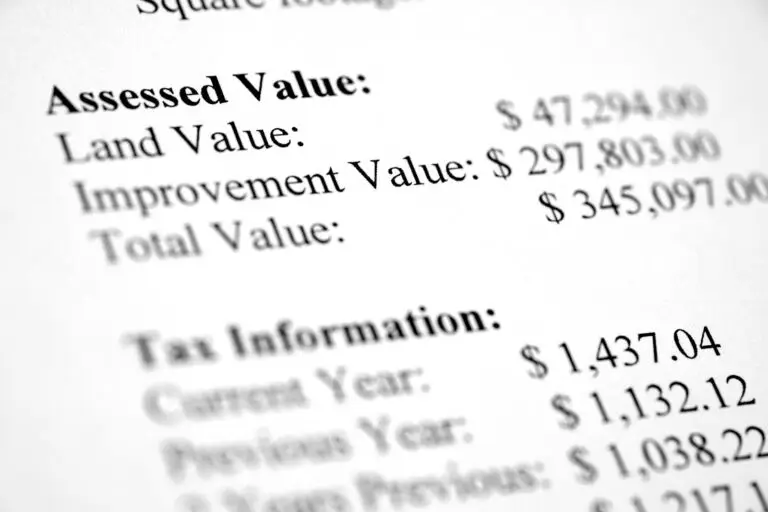
The Bexar Appraisal Board of Directors recently adopted an annual reappraisal plan for the 2025 and 2026 tax years, this included a provision that beginning in 2025, the market value for appeals that are resolved through an informal meeting or Appraisal Review Board formal hearing and are not appealed to arbitration or litigation will remain the market value for the 2026 appraisal year unless there is new construction improvements, change in characteristics or if there is evidence of a further reduction in value. In other words, the 2025 after appeal market value will be “rolled” to the 2026 tax year.
The concept of rolled market values may impact property taxes significantly going forward. While rolled values can provide temporary relief from escalating property taxes, they come with potential pitfalls that property owners must understand.
This blog explores what rolled market values are, their pros and cons, and why they matter—especially in a rapidly growing and evolving market like San Antonio.
What Are Rolled Market Values?

A rolled market value occurs when the county appraisal district elects not to reappraise or increase a property’s value for a given tax year. Essentially, the property’s value from the prior year is “rolled over” into the current year, meaning no adjustments are made to reflect changes in the market.
In practice, this means your property value for tax purposes remains unchanged, even if the market value of your home has increased or decreased. While appraisal districts are required to review property values annually, they have the discretion to decide whether a full reappraisal is necessary for every property.
Why Do Rolled Values Happen?
- Resource Constraints: Conducting property appraisals for every home annually is a monumental task. Appraisal districts, often limited by resources, may focus on properties with significant changes, such as new construction or improvements.
- Market Stability: Rolled values can help stabilize property tax bills during volatile market conditions by preventing sudden spikes or drops in Market values.
- Policy Choices: Local decisions by appraisal districts, Board of Directors may influence the frequency and scope of property reappraisals.
The Pros of Rolled Market Values
1. Protection Against Rapid Tax Increases
For San Antonio homeowners, a rolled value can act as a buffer against skyrocketing property taxes. In recent years, property values in Texas have surged due to high demand and limited housing inventory. A rolled value effectively freezes your Market value, providing temporary financial relief.
For example, if your home’s market value increased by 15% in 2025 but your Market value was rolled from 2024, you would avoid a corresponding increase in property taxes for that year.
2. Predictable Tax Bills
Rolled values contribute to a more predictable tax landscape. With appraisals frozen at prior-year levels, homeowners can budget more accurately for property taxes without worrying about unexpected jumps due to market shifts.
3. Potential Savings During Market Peaks
In hot real estate markets rolled values can shield property owners from paying taxes based on inflated market values. This is particularly helpful during periods when appraisal districts overestimate market values, as many did in 2022.
The Cons of Rolled Market Values
1. Inaccuracy in Property Valuations
A critical downside of rolled values is that they can perpetuate inaccuracies in property valuations. Just because a value remains unchanged doesn’t mean it is correct. Many properties in San Antonio were overvalued during the unprecedented increases of 2022, and rolled values may lock in those inflated figures. It is also important to note that there are still many homeowners who are still experiencing increased property taxes due to the large homestead caps that were placed on their homesteaded properties during the COVID market upturn. You can read more about homestead caps in our previous article.
Example: If your 2024 Market value was already above market value, a rolled value into 2025 would mean you’re still overpaying in property taxes, even if the real estate market cooled.
2. Missed Opportunities for Market Adjustments
In some cases, rolled values might prevent property owners from benefiting when the market shifts in their favor. For instance, if the market value of your property decreased but the appraisal district rolled your higher prior-year value, you could end up paying taxes on an outdated, inflated amount.
3. Lack of Oversight and Accountability
Rolling values can reduce transparency and accountability in the appraisal process. If values are not reassessed regularly, it becomes harder for property owners to verify whether their appraisals align with current market conditions. This can lead to frustration and distrust in the system.
The 2023 Case Study: Lessons for San Antonio Homeowners
In 2023, appraisal districts across Texas, including Bexar County, implemented unprecedented increases in property values. Data analysis revealed that many districts overshot actual market conditions, inflating property values far beyond what buyers were willing to pay.
For San Antonio residents, this created a ripple effect:
- Higher Tax Burdens: Even if a rolled value froze the appraisal, the higher base value from 2023 still led to inflated tax bills.
- Protests Became Essential: Property owners who recognized inaccuracies had to file protests to challenge the overestimated values.
How Rolled Values Impact San Antonio's Unique Market
San Antonio’s housing market is characterized by strong demand, rapid growth, and significant fluctuations in property values. These factors make rolled values particularly impactful in the region.
- Growing Neighborhoods: Areas like Stone Oak and Alamo Ranch often see significant annual market changes. Rolled values can either stabilize tax bills or perpetuate outdated figures that don’t reflect the current market.
- Economic Disparities: In less affluent neighborhoods, rolled values can lock in inflated valuations, disproportionately affecting homeowners who are already struggling with rising costs of living.
Navigating Rolled Values: Tips for San Antonio Homeowners
- Review Your Appraisal Notices: Pay close attention to your annual appraisal notice to ensure your property value aligns with market trends.
- File a Protest if Needed: If you believe your property value is inaccurate, file a protest with the Bexar County Appraisal District.
- Understand Homestead Protections: If your property is your primary residence, the 10% homestead cap can limit annual increases in Market value, even if rolled values aren’t applied.
- Consult with Experts: Property tax consultants such as Alamo Ad Valorem can provide guidance to ensure you’re paying only your fair share.

Final Thoughts
Rolled Market values can be both a blessing and a curse for property owners in San Antonio. While they offer stability and protection against sudden tax increases, they can also lock in inaccuracies, leaving homeowners overpaying in property taxes.
As a homeowner, it’s essential to stay informed about your property’s valuation and advocate for fair assessments. Whether you’re benefiting from rolled values or challenging them, understanding the system empowers you to make the best financial decisions for your property.
If you have questions about your appraisal or need help navigating the process, don’t hesitate to consult a property tax consultant today.

